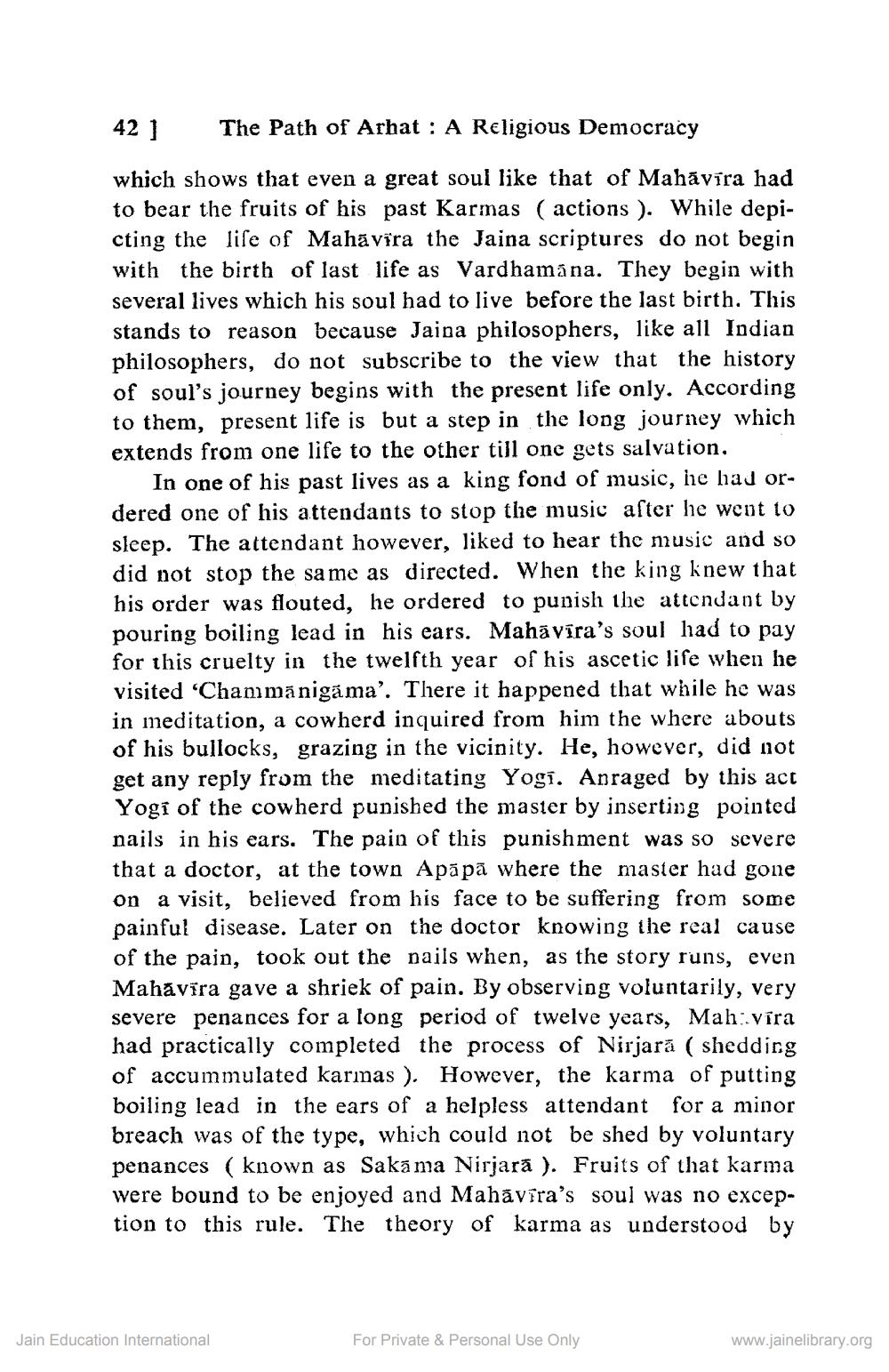________________
421
The Path of Arhat : A Religious Democracy
which shows that even a great soul like that of Mahāvīra had to bear the fruits of his past Karmas (actions ). While depicting the lise of Mahāvīra the Jaina scriptures do not begin with the birth of last life as Vardhamana. They begin with several lives which his soul had to live before the last birth. This stands to reason because Jaina philosophers, like all Indian philosophers, do not subscribe to the view that the history of soul's journey begins with the present life only. According to them, present life is but a step in the long journey which extends from one life to the other till one gets salvation.
In one of his past lives as a king fond of music, ine had ordered one of his attendants to stop the music after he went to sleep. The attendant however, liked to hear the music and so did not stop the same as directed. When the king knew that his order was flouted, he ordered to punish the attendant by pouring boiling lead in his ears. Mahāvíra's soul had to pay for this cruelty in the twelfth year of his ascetic life when he visited 'Chammānigama'. There it happened that while he was in meditation, a cowherd inquired from him the where abouts of his bullocks, grazing in the vicinity. He, however, did not get any reply from the meditating Yogi. Anraged by this act Yogi of the cowherd punished the master by inserting pointed nails in his ears. The pain of this punishment was so severe that a doctor, at the town Apapā where the master had gone on a visit, believed from his face to be suffering from some painful disease. Later on the doctor knowing the real ca of the pain, took out the nails when, as the story runs, even Mahavira gave a shriek of pain. By observing voluntarily, very severe penances for a long period of twelve years, Mah: vira had practically completed the process of Nirjarā ( shedding of accummulated karınas ). However, the karma of putting boiling lead in the ears of a helpless attendant for a minor breach was of the type, which could not be shed by voluntary penances (known as Saka ma Nirjarā ). Fruits of that karma were bound to be enjoyed and Mahavira's soul was no exception to this rule. The theory of karma as understood by
Jain Education International
For Private & Personal Use Only
www.jainelibrary.org




